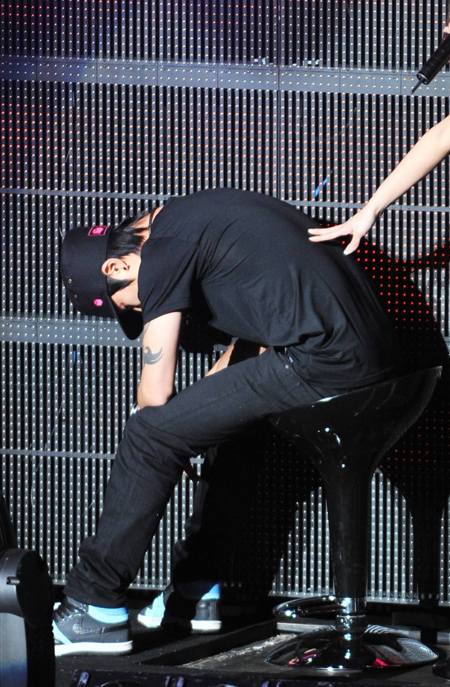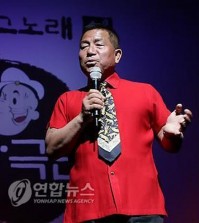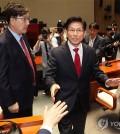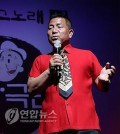- California Assembly OKs highest minimum wage in nation
- S. Korea unveils first graphic cigarette warnings
- US joins with South Korea, Japan in bid to deter North Korea
- LPGA golfer Chun In-gee finally back in action
- S. Korea won’t be top seed in final World Cup qualification round
- US men’s soccer misses 2nd straight Olympics
- US back on track in qualifying with 4-0 win over Guatemala
- High-intensity workout injuries spawn cottage industry
- CDC expands range of Zika mosquitoes into parts of Northeast
- Who knew? ‘The Walking Dead’ is helping families connect
Grim reality of K-pop trainees

A K-pop trainee performs on the stage at “2010 Cube Star Party” concert in Gwangjang-dong, eastern Seoul. Some trainees luckily sign contract with big agencies, but most star wannabes don’t. (Korea Times file)
By Kim Jae-heun
An aspiring K-pop singer feels he is stuck in exactly the same place he started out five years ago; the difference now is that he doesn’t have much hope of changing the fact.
At 25, an age considered ancient by the industry’s standards, he knows his chances of success are extremely remote.
He agreed to an interview with The Korea Times on the condition of anonymity.
The singer still reports to an agency to practice a plastic recorder for eight hours two days a week at the suggestion of his CEO.
“Being a music teacher myself, I know it doesn’t improve my singing skills,” he said.
With little financial support from the agency, he has to work part-time job at a vocal training institute. He has wanted to call it quits many times, but one thing that prevents him from doing so is the five million won he received when he signed the contract. He used it as a deposit to rent a small studio.
His contract says he has to pay back double the original amount he received plus training fees. With his part-time pay, he is certain that he can’t pay.
He is not alone. Trainees often endure unfair treatment — CEO’s verbally abusing them, and contractual disadvantages.
Losing a CEO’s favor means no chance of making a debut as well.
“The CEO once threatened us by saying, ‘I may not make you succeed, but I surely can guarantee your failure,’” he remembered.
He didn’t doubt the threat, considering the intertwined network of the entertainment industry where no connections mean little chance of success.
Agencies became dominant in Korea back in the 1990s when K-pop or hallyu started flourishing.
Leading the hallyu vanguard were Seo Taiji and Boys, who made their debut in 1992, followed by such groups as H.O.T and TVXQ, both of whom belonged to S.M. Entertainment.
This marked the beginning of the mighty agencies.
Chung-Ang University is widely recognized for producing a number of famous actors, most recently Hyun-bin of “Secret Garden” and Kim Su-hyun of “My Love from the Star.” The two were already famous before they even entered the school, however.
A Chung-Ang University graduate school student says the school can’t help students make their way into the industry.
“Only 1 percent of students from our school are able to make a debut as a singer or actor,” he said. “If you want to squeeze your way in, you have to rely on the agencies.”
Private acting institutes or music academies also come under agencies’ influence. Presidents of academies and institutes usually make deals with agency directors to recommend their students.
This is tough on aspiring stars who have to rely on the agencies or have no chance of becoming singers or actors.
“According to my contract, I should have debuted a year ago.
The CEO exploited me when recording guide songs or dancing for other artists,” said the trainee. “There are many trainees who have signed a contract with agencies and do nothing,” he added.
“I think it is good experience for me. If I were to give up my dream, I wouldn’t have started it in the first place. I heard that it takes ten years to be recognized in your field. This is my fifth year, so I still have another half decade to go,” he said.
















Pingback: Standards Of Beauty In South Korea: Who Are They For? | Western Girl Eastern Boy